Nishchal Banskota, freshly graduated from high school in Nepal wanted to become a CPA and was weighing his options to pursue his higher education in the US. He had started his application process and while applying, his major concern was whether to pick a state school, a university or a liberal arts college. He finally started his college in 2011 at Colby-Sawyer College, a small Liberal Arts college in New Hampshire. This was probably one of the pivotal decisions in the making of Nepal Tea.
Nepal Tea, the brainchild of Nishchal Banskota was established in March of 2016. However, for our complete story, we have to step 6 years back in time to 2010.
Nishchal Banskota, freshly graduated from high school in Nepal wanted to become a CPA and was weighing his options to pursue his higher education in the US. He had started his application process and while applying, his major concern was whether to pick a state school, a university or a liberal arts college. He finally started his college in 2011 at Colby-Sawyer College, a small Liberal Arts college in New Hampshire. This was probably one of the pivotal decisions in the making of Nepal Tea.
“Where there are fewer resources, more opportunities emerge”- this is one notion that Nishchal took away (and still firmly believes) from his experience at a small college. Since it was a small liberal arts college, Nishchal got ample opportunities to experiment and grow. In this process, Nishchal, along with his friend, developed and lead the Nepal project, a two-week project, where 4 students from Colby-Sawyer went to Nepal and assisted Maya Universe Academy’s sustainable free education venture by building a bamboo classroom. Maya Universe Academy offers free education to the children by having the parents volunteer 2 days of a month at the school.
At Maya, Nishchal was baffled to see little children walk for almost two hours to come to classes. They relentlessly fetched drinking water for everyday use and assisted in the chores. In spite of harsh conditions and limited resources, their spirits and enthusiasm to get education was undented. Maya Universe Academy was a reality check for Nishchal where he evaluated his own privileges and pondered upon the social differences and hardships of the marginalized population. Among many eye-opening encounters, two stories particularly stuck with him. During a conversation, a 6-year-old told Nishchal that he wanted to become a teacher when he grew up. He told him that he had been lucky to have Maya Academy that was ensuring his education and he, in turn, wanted to be able to educate other children like him and make Nepal like America one day. Being a developing nation, America is held as the standard for development in Nepal. Similarly, one day when Nishchal was cooking meat as a treat for everyone in the school, one boy teared up because he was elated to be eating meat in months. Nishchal realized the importance of giving back to the community and how many lives could be changed for the better by small initiatives; the first seeds of social responsibility had been sowed in his mind.
Nishchal went back to the US to finish his final year of college but he was plagued by dilemmas. He came to become a CPA but liberal arts had changed his heart. He found himself drawn towards a socially responsible business model and was constantly thinking of a way of developing such a model. Throughout his senior year, he was constantly thinking of helping the education sector through business somehow, anyhow. On one hand, he had his degree and his ambition of becoming a CPA, applying for jobs and on the other was what he truly wanted. He was torn.
He was planning a short trip to Nepal after graduation before he stepped into the real world. Graduation was at the horizon but unfortunately, Nepal was hit by a devastating Earthquake and when Nishchal made his way home he extended his short trip to nine months. During his stay, he volunteered to help people in the quake-stricken zone. The gratification that he got through helping the needy and sharing their grief made him certain that he truly wanted to do something in the field of business that had social repercussions.
Kanchanjangha Tea Estate, the tea estate established by his father Mr. Deepak Prakash Baskota had also suffered from the earthquake and Nishchal headed to Phidim to help out. Here, he saw the woes of the lower level workers of a business estate. A large shipment to Germany from KTE-RC had been stopped due to the political unrest following the earthquake and the farmers were suffering the most as their daily income was being affected. It was here that Nishchal decided to utilize the resources at his disposal and attempt to stabilize the lives of these tea farmers.
His first initiative was to open BG Tea Bar, first of its kind in Kathmandu ensuring a stable income for the farmers as the product were handled within the nation. The Tea Bar also started opening the capital to the idea of orthodox tea-drinking practices. In this process, Nishchal realized that whole sellers were buying their products for mere fractions of what they were actually selling it for. He decided to take matters in his hands and came up with a model to expand his business that would directly take the product from the farmers and sell it. By keeping the channel clean, the farmers would get maximum benefit. With these structure in place, Nepal Tea was finally launched in March 2016.
Apart from the sustainable income for the tea farmers, Nepal Tea and KTE-RC also practices corporate social responsibility via the Nepal Tea Foundation.

Nishchal is currently expanding his business in the US and you can find the full listing of his available teas and teawares online.
For details about our business and our social venture visit us.
Until next story, Tea On!!




